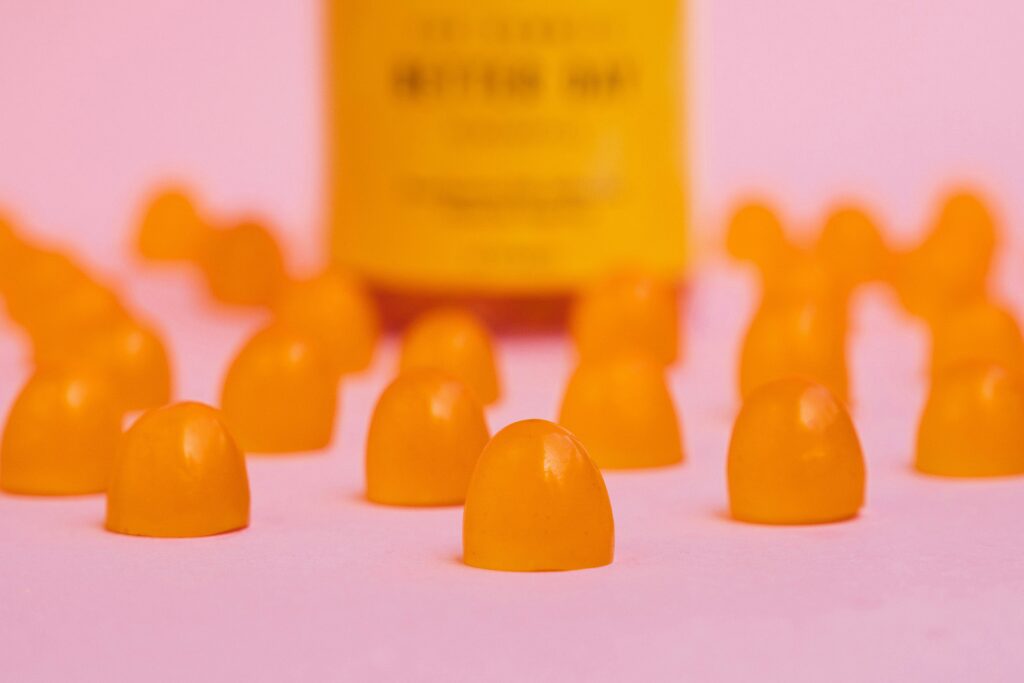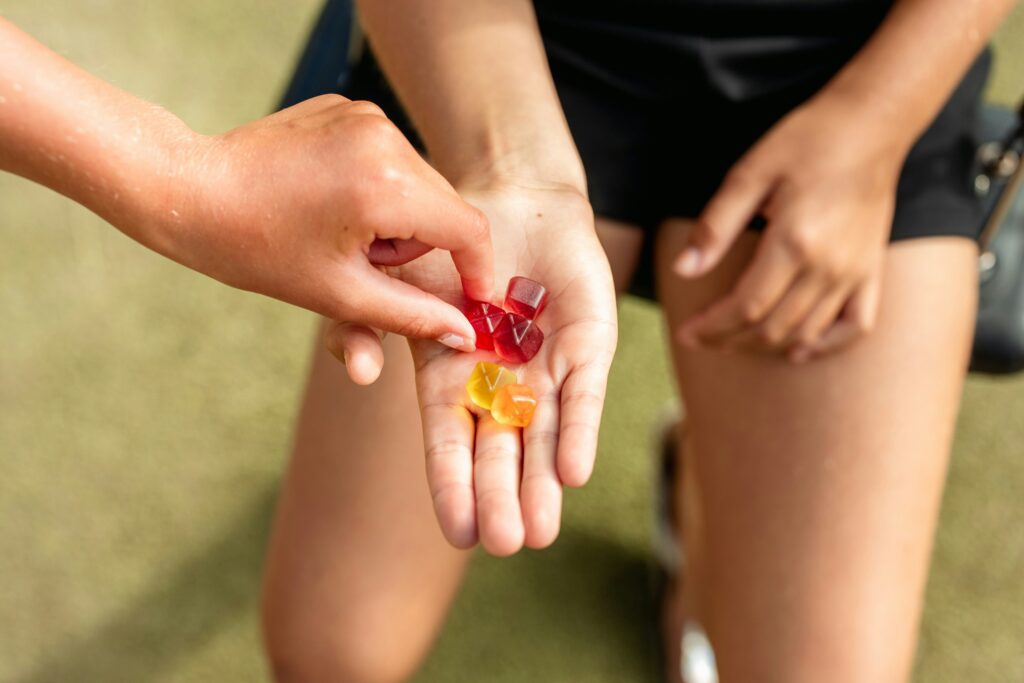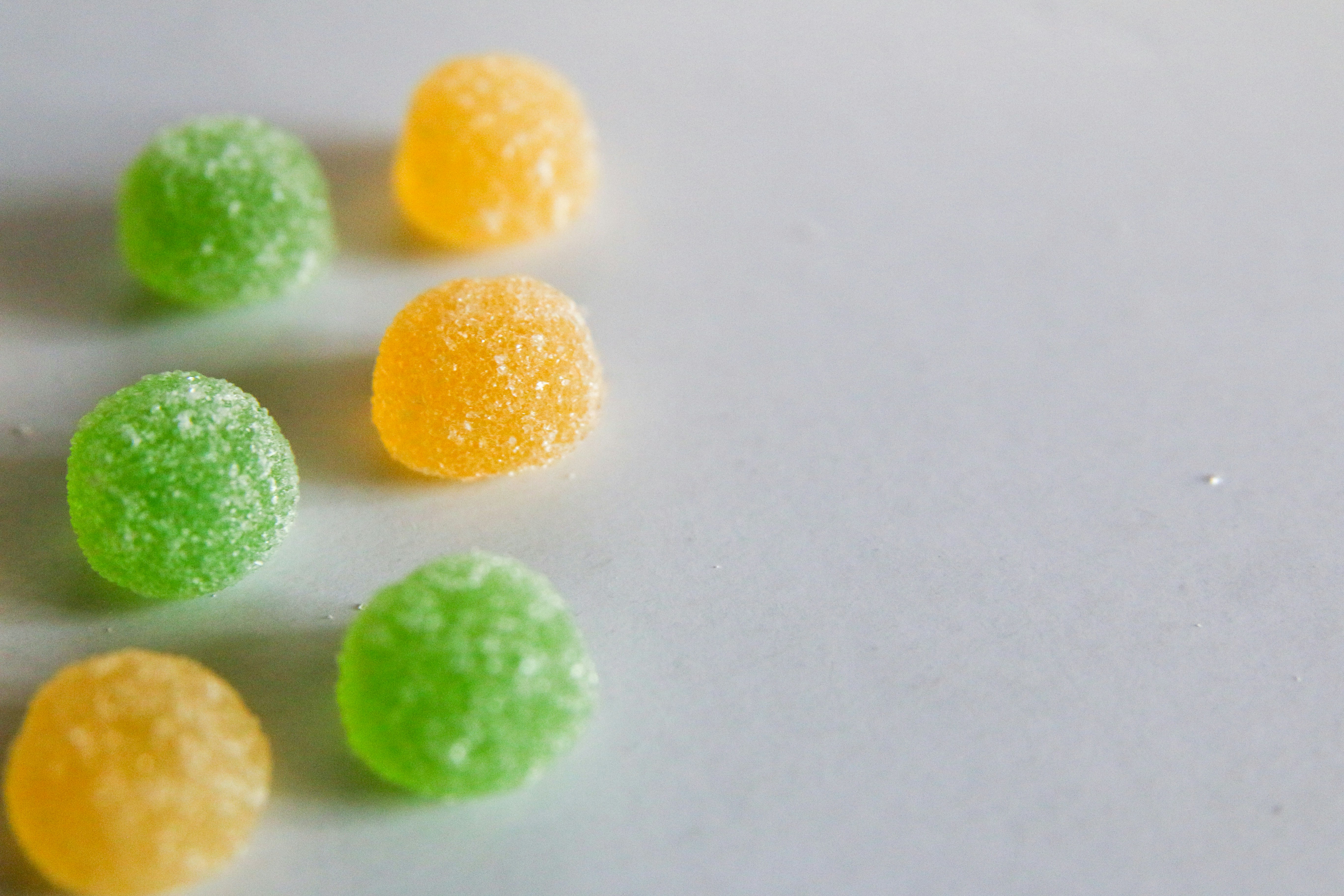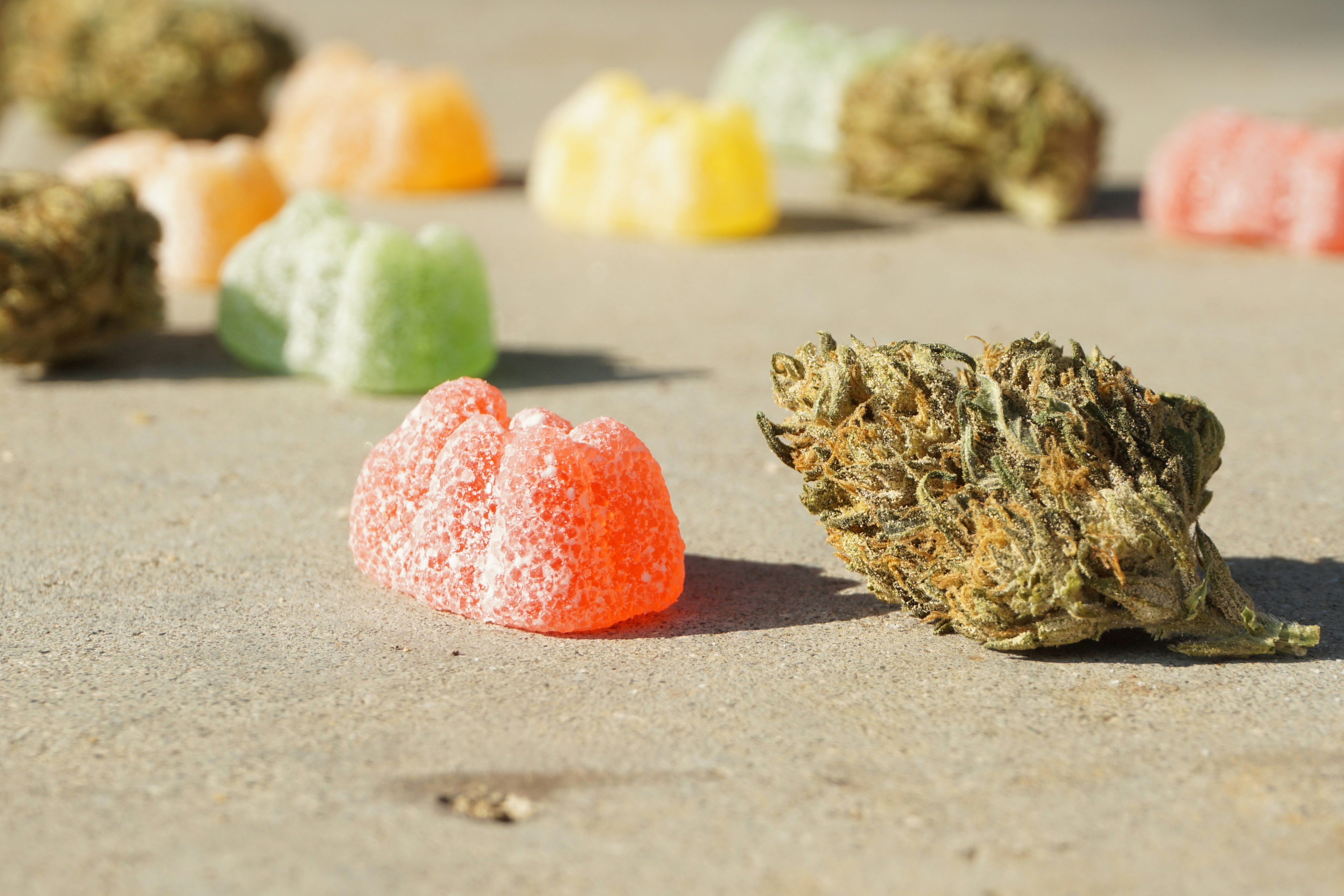Are Edibles Addictive? A Deeper Look Into Cannabis
Are Edibles Addictive? A Deeper Look at Cannabis Dependence
In the rapidly evolving landscape of cannabis consumption, edibles have emerged as one of the most popular and convenient choices for users seeking an alternative to smoking or vaping. From gummies and chocolates to infused beverages, cannabis edibles offer a discreet and long-lasting experience, contributing to their widespread appeal.
However, as their popularity grows, so does the need to address a critical question: Are edibles addictive? With cannabis legalization expanding across the U.S., understanding the potential for addiction, specifically, are edibles addictive, is more important than ever.
The debate over whether edibles are addictive isn’t just about the substance itself but also about patterns of use, individual susceptibility, and the broader implications of cannabis dependence.
Are edibles addictive in the same way as other forms of cannabis, or do their unique properties, such as delayed onset and prolonged effects, increase the risk of dependency? These questions are vital for both new and experienced users, particularly in regions like Asheville, North Carolina, where cannabis culture continues to flourish.
This article explores the complexities surrounding edibles and addiction, examining scientific research, user experiences, and harm reduction strategies. By addressing are edibles addictive, we aim to provide clarity on cannabis dependence and empower individuals to make informed, responsible choices about their consumption.
Whether you’re a casual user or someone concerned about the long-term effects of edibles, understanding the risks, and realities, of addiction is key to safer, more mindful cannabis use.

What Are Cannabis Edibles?
Composition and Variety
The world of cannabis consumption has expanded far beyond traditional smoking methods, with cannabis edibles emerging as one of the most diverse and innovative categories in the industry. These ingestible products, infused with THC, CBD, or other cannabinoids, offer users a smoke-free experience while delivering potent and long-lasting effects.
From artisanal chocolates and fruit-flavored gummies to savory snacks and precisely dosed capsules, the variety of cannabis edibles caters to nearly every palate and preference. But as these products grow in popularity, an important question lingers: Are edibles addictive?
Unlike inhaled cannabis, which enters the bloodstream rapidly through the lungs, edibles must first pass through the digestive system, resulting in a delayed onset that can sometimes lead to accidental overconsumption.
This unique metabolic process, combined with the extended duration of effects, raises concerns about dependency potential—prompting researchers and consumers alike to ask: Are edibles addictive in ways that differ from other forms of cannabis?
While not everyone who consumes edibles will develop problematic usage patterns, the risk of psychological dependence remains a critical consideration, particularly for those with a predisposition to substance misuse.
The conversation around “Are edibles addictive?” also extends to potency and accessibility. Modern edibles often contain highly concentrated THC levels, far exceeding what might be found in traditional cannabis flower, which could contribute to increased tolerance and compulsive use over time.
Additionally, the appealing flavors and discreet nature of edibles may lower perceived risks, making it easier for users to underestimate their consumption. By examining the latest research, expert insights, and user experiences, we can better understand whether—and under what circumstances, edibles might lead to addictive behaviors.
This knowledge is essential for promoting safe, informed, and responsible consumption in an era where cannabis-infused products are more available than ever.
Mechanism of Action
The metabolic journey of cannabis edibles creates a fundamentally different experience from inhalation methods, raising important questions about their habit-forming potential.
When consumed orally, THC and other cannabinoids must first pass through the digestive system and liver before entering circulation – a process that typically takes 30-90 minutes but can vary significantly between individuals.
This metabolic pathway not only delays onset but also converts THC into 11-hydroxy-THC, a more potent psychoactive compound that contributes to edibles’ characteristically intense and prolonged effects.
The unique pharmacokinetics of edibles directly relates to the critical question: are edibles addictive in ways that differ from smoked cannabis? The delayed onset creates a perfect storm for accidental overconsumption, as impatient users often redose before feeling the initial effects.
This common mistake can lead to unexpectedly strong reactions that, while temporary, may contribute to developing tolerance with repeated occurrences. Are edibles addictive precisely because of this cycle of overconsumption and heightened effects?
Some researchers suggest that the more intense psychoactive experience could potentially increase the risk of psychological dependence compared to other consumption methods.
Furthermore, the extended duration of edible effects – often lasting 6-8 hours or more – presents another dimension to the question are edibles addictive.
The prolonged exposure to cannabinoids may theoretically influence the brain’s reward systems differently than shorter-acting inhalation methods. This extended interaction could potentially accelerate the development of tolerance, a known risk factor for dependence.
The combination of delayed onset, unpredictable potency, and prolonged duration creates a unique consumption experience that demands careful consideration when evaluating are edibles addictive and understanding their potential for misuse.
The conversation about are edibles addictive must also account for individual biological factors that affect edible metabolism. Variables like body weight, metabolism speed, digestive health, and genetic differences in liver enzymes can all dramatically alter how a person experiences and processes cannabis edibles.
These individual differences mean that while some users might find edibles easy to moderate, others could be more susceptible to developing problematic usage patterns. Understanding these nuances is crucial for anyone concerned about whether are edibles addictive and how to consume them responsibly.

The Potential for Cannabis Dependence
Understanding Cannabis Dependence
Cannabis dependence, also known as cannabis use disorder, represents a condition where an individual becomes reliant on cannabis, either psychologically or physiologically. Symptoms include intense cravings, increased tolerance, and difficulty reducing use.
Are Edibles Addictive?
Although cannabis is considered less addictive compared to substances like opioids or alcohol, the high THC levels and delayed effects in edibles can lead to patterns of misuse and eventual dependence in some users.
Risk Factors for Developing Dependence
- Frequency of Use: Regular use enhances the likelihood of developing tolerance and dependency.
- Genetic Predisposition: Family history of addiction can increase susceptibility.
- Psychosocial Influences: Stress, mental health challenges, and peer pressure contribute to the risk of addiction.
Health Effects of Edibles
Immediate Effects
The effects of edibles can differ based on dose and individual physiology, but common side effects include:
- Sensory Alterations: Users may experience changes in perception and a distorted sense of time.
- Cognitive and Motor Impairments: Reduced coordination and slower reaction times.
- Anxiety and Paranoia: High doses can trigger these reactions.
Long-term Health Risks
Prolonged or excessive use of edibles can lead to:
- Cognitive Impairment: Adversely affects memory and learning functions over time.
- Mental Health Challenges: Consistent use can worsen conditions such as anxiety and depression.
- Potential for Dependency: Continuous use can develop into dependence, impacting daily life.

Cannabis Use and Resources in Asheville, NC
Legal Context
It’s important to be aware of the legal standing of cannabis use, including edibles, particularly in states like North Carolina where laws are subject to change. Adhering to local regulations ensures safe and legal consumption.
Local Support Systems
Asheville offers resources for individuals navigating cannabis use, from educational initiatives to counseling aimed at those dealing with dependence.
FAQs About Edibles and Cannabis Addiction
Can edibles cause addiction?
While edibles themselves do not inherently cause addiction, their high THC content and delayed effects can contribute to the development of cannabis dependence in some users.
How can you identify cannabis dependence?
Signs include an increased tolerance, withdrawal symptoms when not using, and continuation of use despite negative consequences. Professional assessment and assistance are recommended for those suspecting dependency.
What should you do if someone is struggling with cannabis dependence?
Seeking professional guidance is crucial. Counseling and rehabilitation services provide structured support and coping strategies for overcoming dependence.
For more information, reach out through our contact us page or call us at 828-330-9426.
Understanding whether edibles are addictive highlights a key concern in the conversation about cannabis consumption. Being informed and acknowledging the risks and responsibilities associated with edible use can help ensure safe and beneficial experiences. For comprehensive support, explore our Addiction Treatment services and resources dedicated to promoting healthier lifestyles.

Addiction Recovery Services in Asheville, North Carolina
If you or a loved one is struggling with cannabis dependency, whether from edibles, smoking, or other forms of consumption, know that help is available. At Oasis Recovery Center in Asheville, North Carolina, we provide compassionate, personalized addiction recovery services to support individuals on their journey to sobriety.
Our evidence-based programs address both the physical and psychological aspects of addiction, offering detoxification, individual therapy, group counseling, and holistic treatments tailored to each client’s unique needs.
Many people wonder, “Are edibles addictive?” and while cannabis affects everyone differently, dependency can develop, especially with frequent or heavy use.
Our experienced team at Oasis Recovery understands the complexities of cannabis addiction and provides a non-judgmental, supportive environment for healing. We focus on relapse prevention, coping strategies, and long-term wellness, helping clients rebuild healthy, fulfilling lives free from substance dependence.
Located in the heart of the Blue Ridge Mountains, our serene facility offers an ideal setting for recovery, blending clinical expertise with nature-based therapies. If you’re ready to take the first step toward freedom from addiction, contact Oasis Recovery Center today for a confidential consultation. Recovery is possible, and you don’t have to face it alone.
Call now or visit us to learn more about our programs. Your path to wellness and sobriety begins here.








